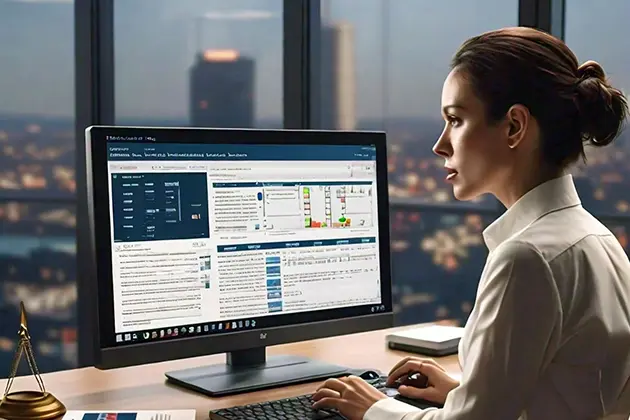Contract negotiation plays a role in every business, though it can often be intricate. Fortunately, recent technological advancements have transformed how contracts are handled. One notable innovation is contract negotiation software, which simplifies negotiations and boosts efficiency for businesses of all types. This article will explore the advantages of contract negotiation software and how its implementation can enhance productivity and provide an edge.
1. Simplifying Contract Generation
Creating contracts or modifying existing templates can be cumbersome in contract negotiations, involving multiple email exchanges or time-consuming meetings. However, contract negotiation software eases this burden by offering customized templates to users based on their requirements. Users can easily create contracts, customize them as needed, include legal terms and clauses, and make adjustments as negotiations progress.
2. Improved Collaboration
Efficient collaboration is crucial during contract negotiations involving teams or stakeholders. Contract negotiation software promotes communication by enabling real-time collaboration among team members, eliminating the hassle of circulating lost documents or multiple versions. With cloud-based platforms and centralized document access, all parties can contribute effectively to the negotiation process. Stay informed about any updates promptly.
3. Document Tracking and Version Control
Keeping tabs on document versions and managing changes is vital for accuracy. To prevent errors stemming from data during negotiations. Conventional methods can lead to confusion when multiple parties simultaneously edit copies of a document. In contrast, contract negotiation software offers version control capabilities that enable all parties to access a master document in real-time. Providing insights into the document’s history, including details on when changes were made and by whom the software helps minimize the risk of mistakes.
4. Automating Workflow Processes
Streamlining workflow processes through automation is crucial in speeding up operations and reducing delays caused by administrative tasks such as sending documents for approval or signing contracts. Contract negotiation software automates these tasks, allowing users to assign duties, easily set alerts for deadlines, and even incorporate electronic signature functionalities. By diminishing the need for intervention, businesses can save time and expedite contract finalization.
5. Improved Document Security
Ensuring robust document security is essential during contract negotiations to uphold confidentiality. Effectively controlling access to contracts and sensitive information is critical for maintaining trust and preventing modifications or leaks. Contract negotiation software enhances document security through features like user permissions, encryption choices, audit trails, and visibility controls. These security measures help ensure authorized individuals can access contract information throughout the negotiation process.
6. Real-Time Analysis and Reporting
Understanding metrics during contract negotiations can help identify areas for improvement and monitor progress effectively. Contract negotiation software offers real-time reporting features. Users can create customized reports on metrics like negotiation cycle times, success rates, bottlenecks in the process, or revised clauses in contracts. Businesses gain insights into enhancing negotiations or streamlining their contract management approach by analyzing this data.
7. Centralized Contract Storage
Managing contracts can be complex, especially when dealing with agreements across departments or locations. Contract negotiation software provides a repository where all contracts and related documents are securely stored in one location. This eliminates the need to search through emails or file cabinets, saving time and ensuring access to critical contract information as needed.
8. Accelerated Approval Procedures
Securing approvals from stakeholders can sometimes lead to delays in contract negotiations. You can expedite approval processes with contract negotiation software by automating workflow steps and notifications. Users can easily assign tasks. Set reminders for approvers, ensuring that everyone involved is informed of their responsibilities and deadlines. By expediting the approval processes, companies can quicken negotiations. Carry out contracts effectively.
9. Integration with Other Systems
Integration with systems is key to boosting efficiency. Contract negotiation software can seamlessly integrate with tools used in an organization, such as CRM systems, ERP platforms, e-signature solutions, and more. These integrations eliminate data entry tasks and enhance data synchronization across applications, reducing errors in the process.
10. Training and Support
When implementing software into a business, providing training to users is crucial for maximizing its benefits. Reputable providers of contract negotiation software offer training resources such as written guides, instructional videos, webinars, and personalized onboarding sessions to ensure adoption within your company. Additionally, having access to support teams is essential for resolving any issues that may arise during usage.
Wrapping Up
Contract negotiation software simplifies the complexities of managing contracts by streamlining workflows, fostering collaboration among team members, enhancing document security measures, automating tasks, and offering real-time analytics capabilities. Utilizing this software tool can boost effectiveness during the negotiation of contracts, guaranteeing precision, saving time, enhancing output, and minimizing the risks linked to mistakes or misunderstandings.










